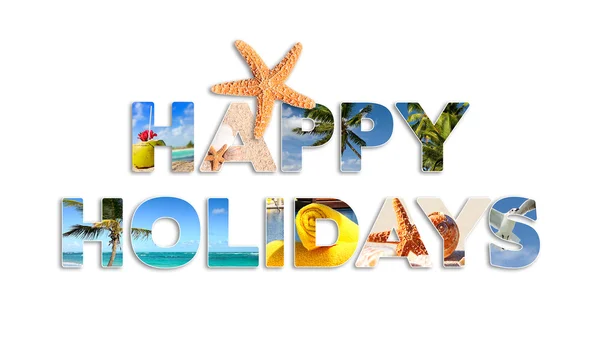10W1 English
Section outline
-
Tēnā koutou katoa
Ko Shivalik te maunga
Ko Markanda te awa
Ko Inia hau te waka
Ko Joshi, Ko Rana ōku whānau
Ko Rajesh tōku ingoa
Nō reira, tēnā koutou, tēnā koutou, tēnā koutou katoa
-
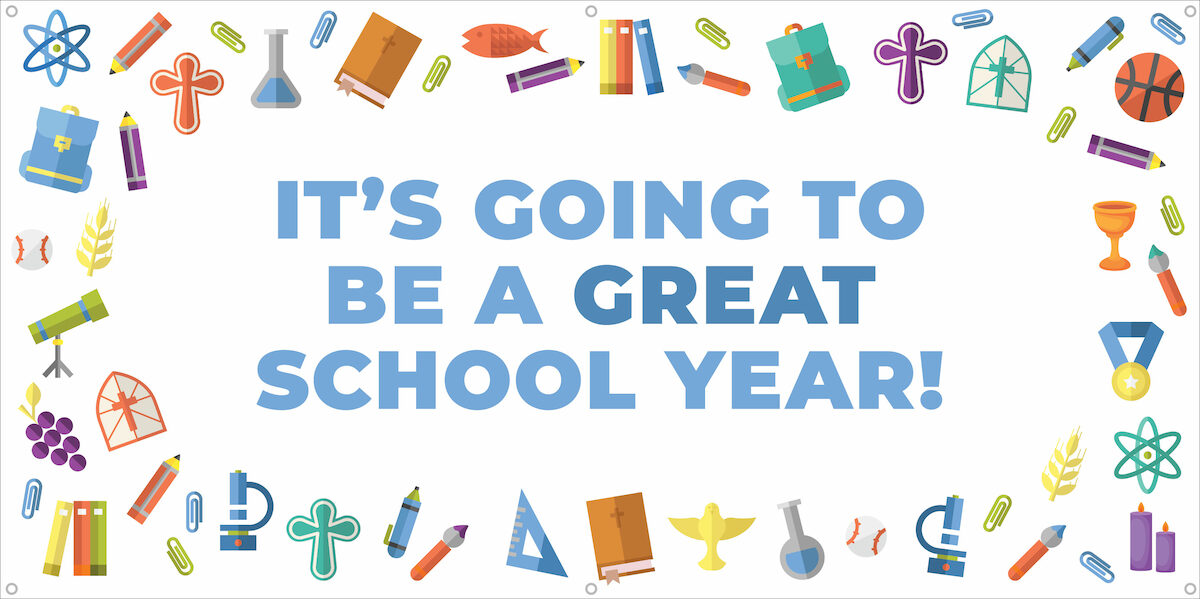
Karakia:
Whakataka te hau ki te uru The West wind has changed
Whakataka te hau ki te tonga The South wind has fallen silent
Kia mākinakina ki uta The land bristles
Kia mātaratara ki tai The sea has goosebumps
E hī ake ana te atakura The first rays of a red dawn pierce the night
He tio, he huka, he hau hū Revealing snow, ice & frost (from mountains to sea)
Haumi e, hui e, tāiki e The breath of life
-

Tēnā koutou, tēnā koutou, tēnā koutou katoa!
Kia Ora Y10 and welcome to your English course page for 2024. My name is Dr. Mrs. (Rajesh) Joshi and I look forward to working with you.
This page is where you will find all the necessary information required for your English course such as Learning Intentions and Success Criteria. All tasks, activities and assessments will be placed here as well as additional lesson notes and resources. Please make it a habit to check this page at the start of each week. This will ensure that you are aware of any expectations we may have of you at that time.
Demonstrate that you practice the school values 'Learning to Learn (Ako), Compassion (Awhinatanga) Integrity (Pono) and Life-Long Learner (Wānanga)' in word and spirit. Learn and enjoy while you are here. Feel free to see me or email me if you have any concerns/questions about your learning. My email address is: rjoshi@mhjc.school.nz
This is a short week. We will discuss how English class functions and important components of English learning. Also we will look back at our Y9 work & progress and plan our goals for our Y10. Please make sure you bring your reading & writing books, pencil case and laptop to the English class.
I wish you a great year ahead at Water/MHJC! We will work together to achieve our goals!
Resources:
Mrs. Joshi's English Class
-
Week 3
EXPLORE / TŪHURA learning intentions:
- We are Exploring….’Short texts about Water’ by observing the structure and characterisation in short stories.
- We are Exploring….’Short texts about Water’ by recognising inequality in the distribution of water around the globe.
- We are Exploring….’Short texts about Water’ by discovering the impact of water inequalities on people, places and environment.
- We are Exploring… ’Short texts about Water’ by analysing historical and contemporary conflicts over water.
CONTEXT: SOS WATER
Activities:
-Reading the story 'Who Owns The Water?'
-Class activities based on the story.
-The concept of power: rich vs poor farmer in the story
-Research and present the concept of power in real world (a historical or contemporary issue)
-Use One Word At A Time (Speaking task)
Resources:
Book: Water stories from around the world
Use One Word At A Time Prompts
MHJC Great Learner Learning to Learn / Ako: Learning and Thinking Strategy
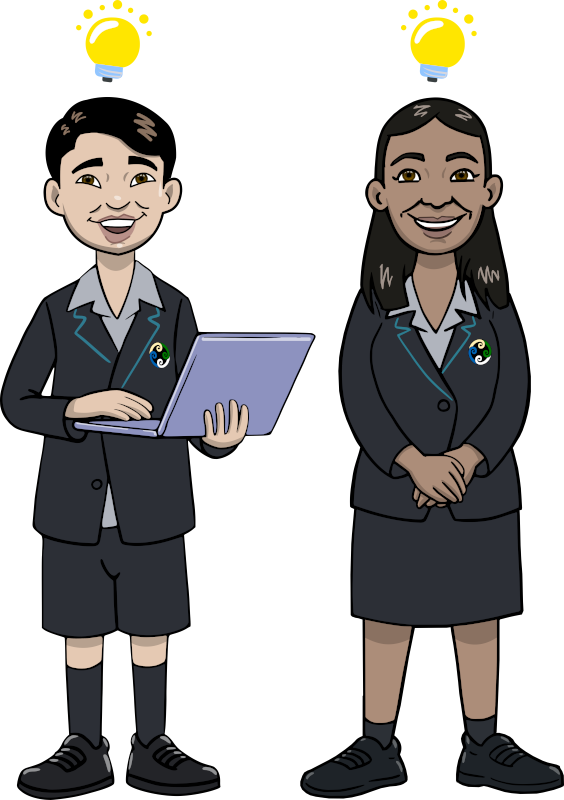
I believe we can make a difference; for myself, for others and for my community:
- Emerging:
- I understand that mistakes are essential for learning
- I use positive self talk as I seek to achieve my goals
- I seek input from others to help me make decisions
- Growing:
- I am robust as I overcome challenges and upsets
- I am positive and persistent as I strive to achieve my goals
- I can make independent decisions, seeking input from others when needed
-
Week 4
EXPLORE / TŪHURA learning intentions:
- We are Exploring….’Short texts about Water’ by observing the structure and characterisation in short stories.
- We are Exploring….’Short texts about Water’ by recognising inequality in the distribution of water around the globe.
- We are Exploring….’Short texts about Water’ by discovering the impact of water inequalities on people, places and environment.
- We are Exploring… ’Short texts about Water’ by analysing historical and contemporary conflicts over water.
CONTEXT: SOS WATER
Activities:
-Do Now: Describe the Night Sky (Pobble 365)
-Vocabulary: There, Their, They're
-Speaking Task- CHANGE-The speaker speaks on any topic of their choice. Whenever the teacher says 'Change' they change their topic and speak on a new topic.
-Reading the stories of people from diverse countries whose lives were changed by safe water and sanitation.
-Discussing about the inequality of resources/water across different countries.
-Activities based on our reading.
Resources:
https://www.waterforpeople.org/the-people/
https://app.pobble.com/lessons/prompt/e88ddb74
MHJC Great Learner Learning to Learn / Ako: Learning and Thinking Strategy

I believe we can make a difference; for myself, for others and for my community:
- Emerging:
- I understand that mistakes are essential for learning
- I use positive self talk as I seek to achieve my goals
- I seek input from others to help me make decisions
- Growing:
- I am robust as I overcome challenges and upsets
- I am positive and persistent as I strive to achieve my goals
- I can make independent decisions, seeking input from others when needed
-
WEEK 5
EXPLORE / TŪHURA learning intentions:
- We are Exploring….’Short texts about Water’ by observing the structure and characterisation in short stories.
- We are Exploring….’Short texts about Water’ by recognising inequality in the distribution of water around the globe.
- We are Exploring….’Short texts about Water’ by discovering the impact of water inequalities on people, places and environment.
- We are Exploring… ’Short texts about Water’ by analysing historical and contemporary conflicts over water.
Activities:
Do Now: Tandem Story Writing
Vocabulary: Fall, Fail, Feel, Fell
Speaking Task: '3-2-1.'Reading the story, "The Hero Twins and the Swallower of Clouds" from the book 'Water Stories From Around The World.'
-Tasks based on the story:
Group 1: Identify and enlist the changes that occurred in the village after it stopped raining.
Group 2: Just like in the story, most of us have a 'spider' in our lives who uplifts and supports us. Who is your spider? How did they contribute to your life/success?
Group 3: What are the qualities of the heroes? Who do you consider a hero in the present world and why?MHJC Great Learner Learning to Learn / Ako: Learning and Thinking Strategy

I believe we can make a difference; for myself, for others and for my community:
- Emerging:
- I understand that mistakes are essential for learning
- I use positive self talk as I seek to achieve my goals
- I seek input from others to help me make decisions
- Growing:
- I am robust as I overcome challenges and upsets
- I am positive and persistent as I strive to achieve my goals
- I can make independent decisions, seeking input from others when needed
-
Week 6
FOCUS / ARONGA learning intentions:
- We are FOCUSING...on INPUT skills such as reading, listening and viewing by selecting relevant texts.
- We are FOCUSING...on OUTPUT skills such as writing, speaking and presenting by responding to the give texts.
- We are FOCUSING... on Short texts by developing our understanding of the 'water' related issues around the world
- We are FOCUSING... on Written Language Features and Skills by showing an understanding of how to shape texts for different audiences and purposes.
EXPLORE / TŪHURA learning intentions:
- We are Exploring….’Short texts about Water’ by observing the structure and characterisation in short stories.
- We are Exploring….’Short texts about Water’ by recognising inequality in the distribution of water around the globe.
- We are Exploring….’Short texts about Water’ by discovering the impact of water inequalities on people, places and environment.
- We are Exploring… ’Short texts about Water’ by analysing historical and contemporary conflicts over water.
CONTEXT: SOS WATER
Activities:
-Do Now: Crossword Puzzle
-Self Study/Homework-English Workbook-pages 43,44,45
-Vocabulary: Reduplicative Words
Some words in English simply repeat themselves: the second part is identical with the first, pooh-pooh, or repeats the first part with a change of vowel, riff-raff, or of consonant, teeny-weeny. These are called reduplicative words. Here are some everyday English examples.
flip-flop
mish-mash
nick-nack
pitter-patter
sing-song
see-saw
ping-pong
Repeating with change of consonant
hurdy-gurdy
mumbo-jumbo
walky-talky
hanky-panky
hotchpotch
higgledy-piggledy
hocus-pocus
criss-cross
argy-bargy
hanky-panky
-Listening Task- Positional Dictation
-Reading the poems on the theme of 'Water.'
-Poetry appreciation tasks:
Group 1: Make a list of the things the poet is teaching in the poem in the same order as they occur in the poem. Add three points of your own that you would like to teach children around water.
Group 2: How are the ideas in the poem ordered? Is there a progression of some sort? From simple to complex? From outer to inner? From past to present? From one place to another? Is there a climax?
Group 3: Is the poem built on a comparison or analogy? If so, how is the comparison appropriate?
How are the two things alike? How are they different?
Are there any consistent patterns of words? For example, are there several references to flowers, or water, or politics, or religion in the poem? Look for groups of similar words.
Resources:Three Poems (One for each group)
MHJC Great Learner Learning to Learn / Ako: Learning and Thinking Strategy

MHJC Great Learner Compassion / Awhinatanga: Positive Partnerships
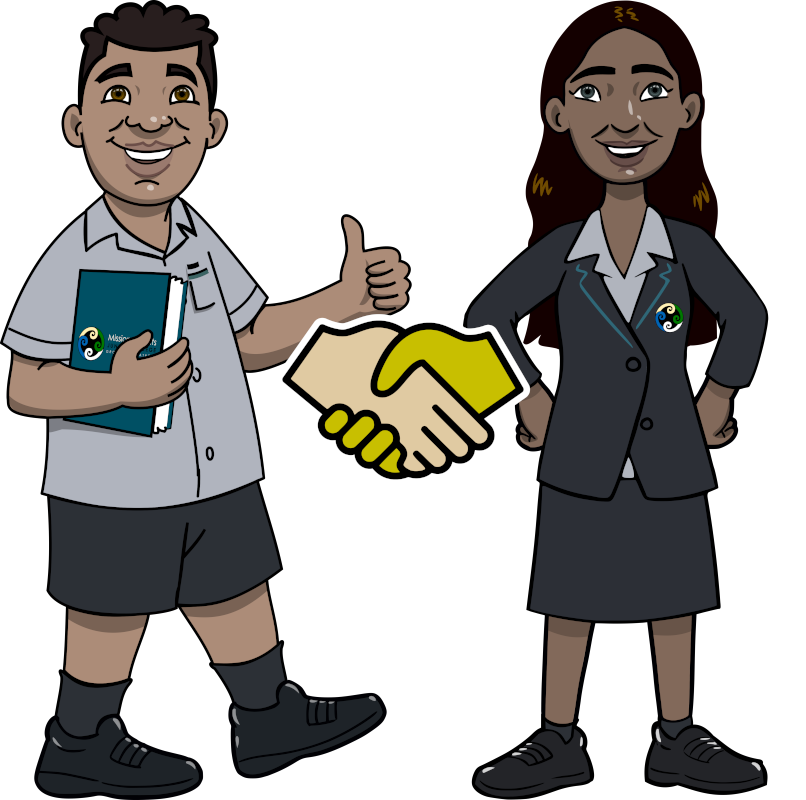
MHJC Great Learner Compassion / Awhinatanga: Resilient Mindset
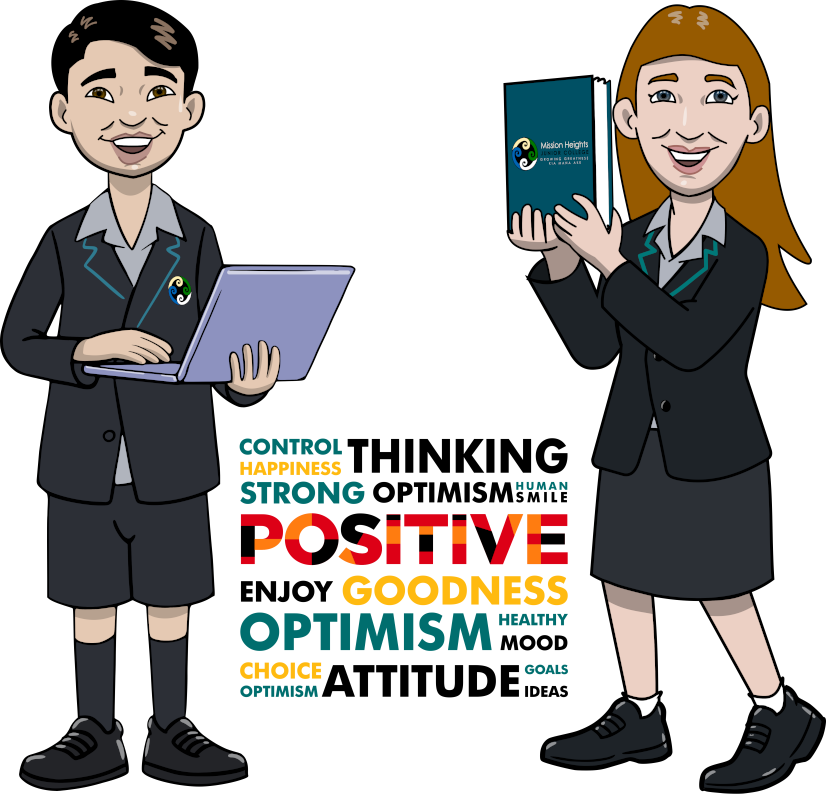
Enter text here...
MHJC Great Learner Learning to Learn / Ako: Learning and Thinking Strategy

https://www.youtube.com/watch?v=V5uXLME3ph0
I believe we can make a difference; for myself, for others and for my community:
- Emerging:
- I understand that mistakes are essential for learning
- I use positive self talk as I seek to achieve my goals
- I seek input from others to help me make decisions
- Growing:
- I am robust as I overcome challenges and upsets
- I am positive and persistent as I strive to achieve my goals
- I can make independent decisions, seeking input from others when needed
-
Week 7
EXPLORE / TŪHURA learning intentions:
- We are Exploring….’Short texts about Water’ by observing the structure and characterisation in short stories.
- We are Exploring….’Short texts about Water’ by recognising inequality in the distribution of water around the globe.
- We are Exploring….’Short texts about Water’ by discovering the impact of water inequalities on people, places and environment.
- We are Exploring… ’Short texts about Water’ by analysing historical and contemporary conflicts over water.
MHJC Great Learner Learning to Learn / Ako: Learning and Thinking Strategy

MHJC Great Learner Compassion / Awhinatanga: Positive Partnerships

MHJC Great Learner Compassion / Awhinatanga: Resilient Mindset

FOCUS / ARONGA learning intentions:
- We are FOCUSING...on INPUT skills such as reading, listening and viewing by selecting relevant texts.
- We are FOCUSING...on OUTPUT skills such as writing, speaking and presenting by responding to the give texts.
- We are FOCUSING... on Short texts by developing our understanding of the 'water' related issues around the world
- We are FOCUSING... on Written Language Features and Skills by showing an understanding of how to shape texts for different audiences and purposes.
CONTEXT: SOS WATER
Activities:
-Do Now: Choose one of the prompts below and speak for 1-2 minutes:
Have you ever had to have a really difficult conversation with someone? How did you handle it?
If you could spend a day with one of your ancestors, what would you ask them?
What brings you the most joy?
-Vocabulary:
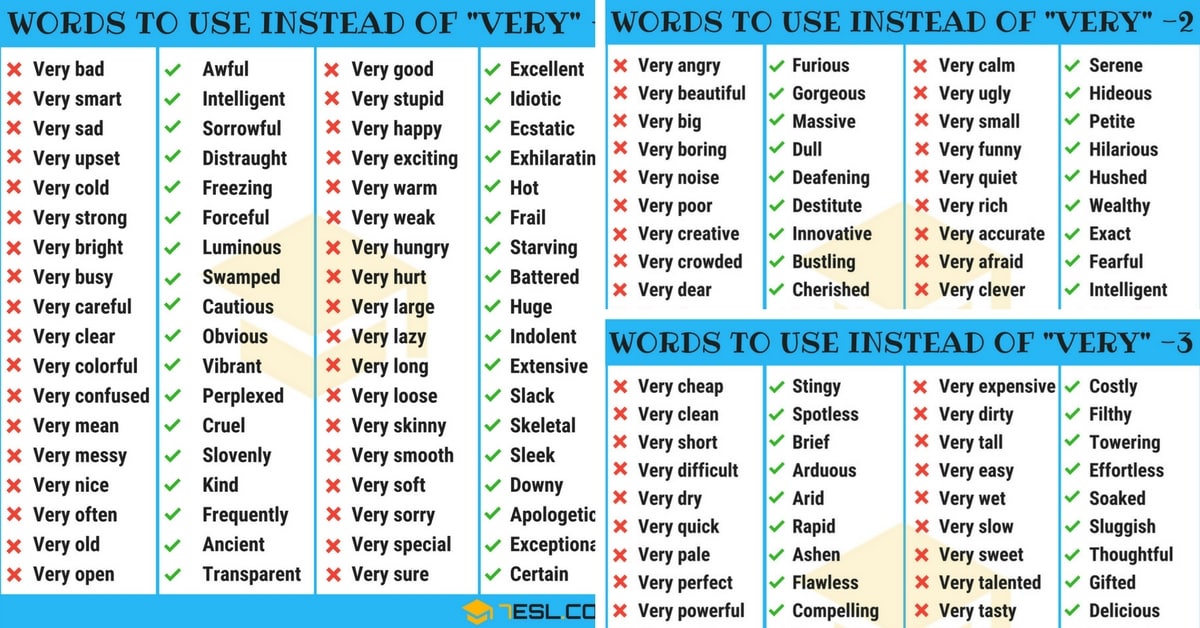
-Listening Task: Positional Dictation
-Reading the article, "Water increasingly at the center of conflicts from Ukraine to the Middle East."
-Activities based on Article Reading (Do your group task from the folder)
-Learning to write Graph statements for Maths tasks.
Resources:
https://www.latimes.com/environment/story/2023-12-28/water-related-conflicts-on-the-rise-worldwide
-
Week 8
FOCUS / ARONGA learning intentions:
- We are FOCUSING...on INPUT skills such as reading, listening and viewing by selecting relevant texts.
- We are FOCUSING...on OUTPUT skills such as writing, speaking and presenting by responding to the give texts.
- We are FOCUSING... on Short texts by developing our understanding of the 'water' related issues around the world
- We are FOCUSING... on Written Language Features and Skills by showing an understanding of how to shape texts for different audiences and purposes.
PLAN & DO / WHAKAMAHI learning intentions:
- We are PLANNING to construct a Verbal text so that we can demonstrate an understanding of the purpose and audience through deliberate choice of content, language and text form.
- We are PLANNING to deliver an oral presentation so that we can express our ideas, opinions and thoughts on our chosen topic.
CONTEXT: SOS WATER
Activities: (ASSESSMENT 1: I HAVE GOT SOMETHING TO SAY
SPEECH SUBMISSION ON MHOL: 11TH APRIL 2023 BY 11:59 p.m.
-Do Now: Write down three speech topics for your English Assessment 1 in your book. Also write one reason for each topic: Why do you want to present your speech on this topic?
-Self Study/Homework-Complete your speech planning.-Vocabulary: Persuasive Words/Phrases
-Learning to write a persuasive speech for Assessment 1.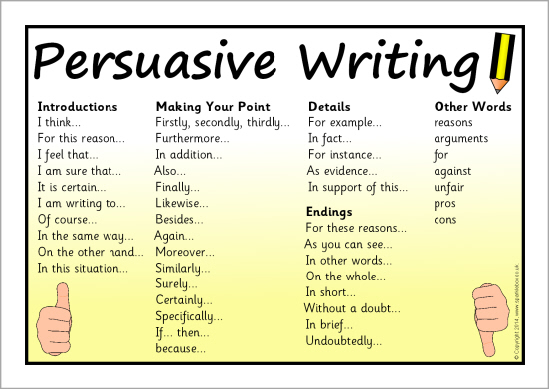
-Using the given template, planning our speech.
Resources:
Speech planning template
(All resources are within the template)Success Criteria: I Can.....
Purpose & Audience
I can start to develop an understanding of the writer's purposes
I can develop some understanding of the writer's purposes
I can show understanding of the range of ways in which writers use language and ideas to suit their purposes
I can show convincing understanding of the range of ways in which writers use language and ideas to suit their purposes
Ideas
I can develop an understanding of range of reading comprehension strategies to make meaning of the ideas and respond to texts
I can demonstrate some understanding of a range of reading comprehension strategies to make meaning of the ideas and respond to texts
I can demonstrate understanding of range of reading comprehension strategies to make meaning of the ideas and respond to texts
I can demonstrate convincing understanding of range of reading comprehension strategies to make meaning of the ideas and respond to texts
Structure & Content
I have attempted to use some structure to prepare content which is appropriate for audience and purpose
I have begun to structure content and used appropriate language for audience and purpose
I have structured content and used appropriate language for audience and purpose
I have cohesively structured content and used appropriate language for audience and purpose
Language features
I can develop an understanding of language features and their effects.
I can demonstrate some understanding of language features and their effects in detail.
I can demonstrate understanding of language features and effects in detail with consistent awareness of author’s purpose in using these
I can demonstrate convincing understanding of language features and effects in detail with consistent awareness of author’s purpose in using these
-
Week 9
FOCUS / ARONGA learning intentions:
- We are FOCUSING...on INPUT skills such as reading, listening and viewing by selecting relevant texts.
- We are FOCUSING...on OUTPUT skills such as writing, speaking and presenting by responding to the give texts.
- We are FOCUSING... on Short texts by developing our understanding of the 'water' related issues around the world
- We are FOCUSING... on Written Language Features and Skills by showing an understanding of how to shape texts for different audiences and purposes.
PLAN & DO / WHAKAMAHI learning intentions:
- We are PLANNING to construct a Verbal text so that we can demonstrate an understanding of the purpose and audience through deliberate choice of content, language and text form.
- We are PLANNING to deliver an oral presentation so that we can express our ideas, opinions and thoughts on our chosen topic.
CONTEXT: SOS WATER
Activities: ASSESSMENT 1: I HAVE GOT SOMETHING TO SAY
SPEECH SUBMISSION ON MHOL: 11TH APRIL 2023 BY 11:59 p.m.
-Do Now: Check this link for 'PERSUASIVE TECHNIQUES' and see which ones you would like to use in your speech:
https://www.matrix.edu.au/5-techniques-to-make-your-audience-believe-your-speech/
-Self Study/Homework-Complete your speech planning.-Vocabulary: Persuasive Words/Phrases for a speech:
https://geniebook.com/exam-preparation/gce-o-level/article/persuasive-writing-vocabulary-chart-unlocking-power-words
-Using the given template, write the introduction and first body paragraph of your speech.
Success Criteria: I Can.....
Purpose & Audience
I can start to develop an understanding of the writer's purposes
I can develop some understanding of the writer's purposes
I can show understanding of the range of ways in which writers use language and ideas to suit their purposes
I can show convincing understanding of the range of ways in which writers use language and ideas to suit their purposes
Ideas
I can develop an understanding of range of reading comprehension strategies to make meaning of the ideas and respond to texts
I can demonstrate some understanding of a range of reading comprehension strategies to make meaning of the ideas and respond to texts
I can demonstrate understanding of range of reading comprehension strategies to make meaning of the ideas and respond to texts
I can demonstrate convincing understanding of range of reading comprehension strategies to make meaning of the ideas and respond to texts
Structure & Content
I have attempted to use some structure to prepare content which is appropriate for audience and purpose
I have begun to structure content and used appropriate language for audience and purpose
I have structured content and used appropriate language for audience and purpose
I have cohesively structured content and used appropriate language for audience and purpose
Language features
I can develop an understanding of language features and their effects.
I can demonstrate some understanding of language features and their effects in detail.
I can demonstrate understanding of language features and effects in detail with consistent awareness of author’s purpose in using these
I can demonstrate convincing understanding of language features and effects in detail with consistent awareness of author’s purpose in using these
-
Opened: Monday, 8 April 2024, 12:00 AMDue: Thursday, 11 April 2024, 11:59 PM
Students will be assessed on their " I Have Got SomethingTo Say!" speech
-
Week 10
FOCUS / ARONGA learning intentions:
- We are FOCUSING...on INPUT skills such as reading, listening and viewing by selecting relevant texts.
- We are FOCUSING...on OUTPUT skills such as writing, speaking and presenting by responding to the give texts.
- We are FOCUSING... on Short texts by developing our understanding of the 'water' related issues around the world
- We are FOCUSING... on Written Language Features and Skills by showing an understanding of how to shape texts for different audiences and purposes.
PLAN & DO / WHAKAMAHI learning intentions:
- We are PLANNING to construct a Verbal text so that we can demonstrate an understanding of the purpose and audience through deliberate choice of content, language and text form.
- We are PLANNING to deliver an oral presentation so that we can express our ideas, opinions and thoughts on our chosen topic.
Activities:
-Completing the second and third body paragraphs.
-Completing the conclusion of the speech.
(Don’t forget about sequence markers such as firstly, secondly, consequently, lastly etc. Also consider using proverbs from your own language, persuasive techniques and language devices.)
Resources: Check the given resources in week 8 & 9.
-
Week 11
FOCUS / ARONGA learning intentions:
- We are FOCUSING...on INPUT skills such as reading, listening and viewing by selecting relevant texts.
- We are FOCUSING...on OUTPUT skills such as writing, speaking and presenting by responding to the give texts.
- We are FOCUSING... on Short texts by developing our understanding of the 'water' related issues around the world
- We are FOCUSING... on Written Language Features and Skills by showing an understanding of how to shape texts for different audiences and purposes.
PLAN & DO / WHAKAMAHI learning intentions:
- We are PLANNING to construct a Verbal text so that we can demonstrate an understanding of the purpose and audience through deliberate choice of content, language and text form.
- We are PLANNING to deliver an oral presentation so that we can express our ideas, opinions and thoughts on our chosen topic.
Activities: SPEECH SUBMISSION ON MHOL: 11TH APRIL 2023 BY 11:59 p.m.
-Checking Speech Timing and editing, finalising the speech accordingly (between 4 and 5 minutes)
-Uploading the speech on MHOL>Link in week 9 of Term 1>25th to 31st March (Last date to submit-11th April)
For your information, I am including the following dates so you have it all in writing:
Term 1: Week 11 -speech written and edited, PDF uploaded on MHOL.
Term 1 Holidays -Cue cards printed, memorise your speech.
Term 2: Week 1 & 2 –All three sessions-presentation of speeches in class.
Term 2: Week 3 –Speech Resubmissions; if any.
This week, your goal is to have the speech finalised and uploaded on MHOL. Upload a PDF of your planning/writing TEMPLATE. You can not make any change to your speech after this.
Resources:
-Public Speaking Skills
Use the following notes when you practice your speech:
Just as words form the spoken language to communicate a message. In the same way how we stand, where we look, how we move our hands and the tone of our voice form the body language.
Eye Contact
Look at your audience before you begin
Look at several people throughout the audience (If you find this really difficult, look at the top of the heads of the people in the back row, then at least your voice will carry to everyone in the audience)
Presentation Voice
Take a deep breath
Begin speaking in a voice louder than your usual conversation voice
Set Your Hands
Hold your cue cards loosely in one hand
Hold your hands together
Keep them about waist high in front of you
Set your feet
Place your feet & shoulder wide apart
Balance your weight evenly on both feet.
https://professional.dce.harvard.edu/blog/10-tips-for-improving-your-public-speaking-skills/
-
Week 1
Kia Ora Y10. Welcome back to school in Term 2. I hope you all had a refreshing holiday and you practiced your speech well. From this week, we will start the presentation of the speeches. We will have first (English) session for practice. Remember to time your speech well between 4 and 5 minutes.
This is going to be your Assessment for Term 1. You will be graded on your ideas, content and presentation.
PLAN & DO / WHAKAMAHI learning intentions:
- We are PLANNING to construct a Verbal text so that we can demonstrate an understanding of the purpose and audience through deliberate choice of content, language and text form.
- We are PLANNING to deliver an oral presentation so that we can express our ideas, opinions and thoughts on our chosen topic.
CONTEXT: SOS WATER
Activities: ASSESSMENT 1: I HAVE GOT SOMETHING TO SAY
-Memorise your speech.
-Practice your speech.
-Keep your cue cards ready.
-Present your speech to the class.
Resources:
-Public Speaking Skills
Use the following notes when you practice your speech:
Just as words form the spoken language to communicate a message. In the same way how we stand, where we look, how we move our hands and the tone of our voice form the body language.
Eye Contact
Look at your audience before you begin
Look at several people throughout the audience (If you find this really difficult, look at the top of the heads of the people in the back row, then at least your voice will carry to everyone in the audience)
Presentation Voice
Take a deep breath
Begin speaking in a voice louder than your usual conversation voice
Set Your Hands
Hold your cue cards loosely in one hand
Hold your hands together
Keep them about waist high in front of you
Set your feet
Place your feet & shoulder wide apart
Balance your weight evenly on both feet.
https://professional.dce.harvard.edu/blog/10-tips-for-improving-your-public-speaking-skills/
-
Week 2
PLAN & DO / WHAKAMAHI learning intentions:
- We are PLANNING to construct a Verbal text so that we can demonstrate an understanding of the purpose and audience through deliberate choice of content, language and text form.
- We are PLANNING to deliver an oral presentation so that we can express our ideas, opinions and thoughts on our chosen topic.
CONTEXT: SOS WATER
Activities: ASSESSMENT 1: I HAVE GOT SOMETHING TO SAY
-Memorise your speech.
-Practice your speech.
-Keep your cue cards ready.
-Present your speech to the class.
Resources:
-Public Speaking Skills
Use the following notes when you practice your speech:
Just as words form the spoken language to communicate a message. In the same way how we stand, where we look, how we move our hands and the tone of our voice form the body language.
Eye Contact
Look at your audience before you begin
Look at several people throughout the audience (If you find this really difficult, look at the top of the heads of the people in the back row, then at least your voice will carry to everyone in the audience)
Presentation Voice
Take a deep breath
Begin speaking in a voice louder than your usual conversation voice
Set Your Hands
Hold your cue cards loosely in one hand
Hold your hands together
Keep them about waist high in front of you
Set your feet
Place your feet & shoulder wide apart
Balance your weight evenly on both feet.
https://professional.dce.harvard.edu/blog/10-tips-for-improving-your-public-speaking-skills/
-
Week 3
EXPLORE / TŪHURA learning intentions:
- We are EXPLORING “Multicultural Us-Whanaungatanga” by discovering the cultural diversity in New Zealand.
- We are EXPLORING “Multicultural Us-Whanaungatanga” by investigating the changing face of Aotearoa
- We are EXPLORING “Multicultural Us- Whanaungatanga” by analysing the factors contributing to the changing face of Aotearoa
- We are EXPLORING “Multicultural Us-Whanaungatanga” by recognising the impacts of changing face of Aotearoa on our life and communities.
Big Idea: “Multicultural Us-Whanaungatanga”
Activities:
-Vocabulary task for our Term 2 context.
-Reading 'Multicultural New Zealand'
-Remaining speech presentations & resubmissions.
Resource:
https://teara.govt.nz/en/the-new-zealanders/page-13
Awhinatanga: Positive Partnerships

Awhinatanga: Culturally Connected
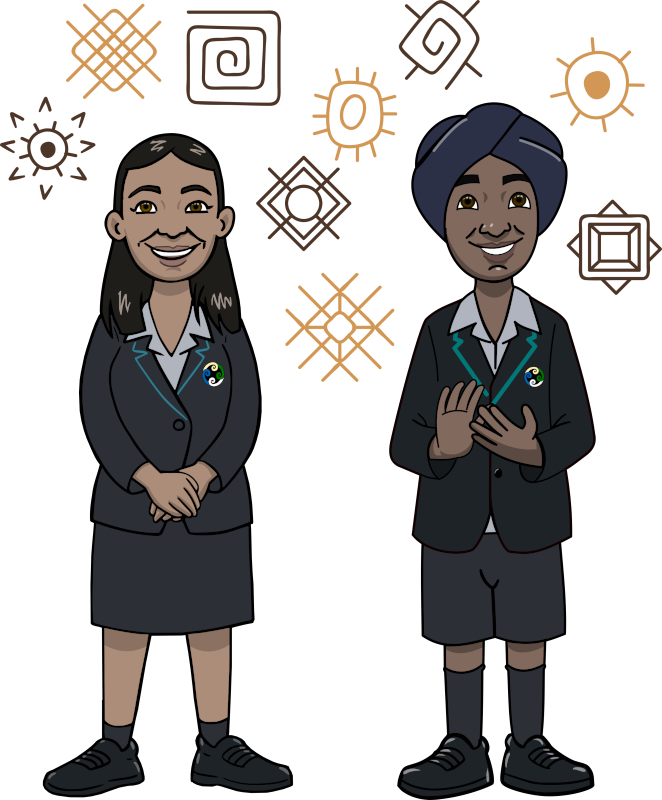
Wänanga: GREAT Ako
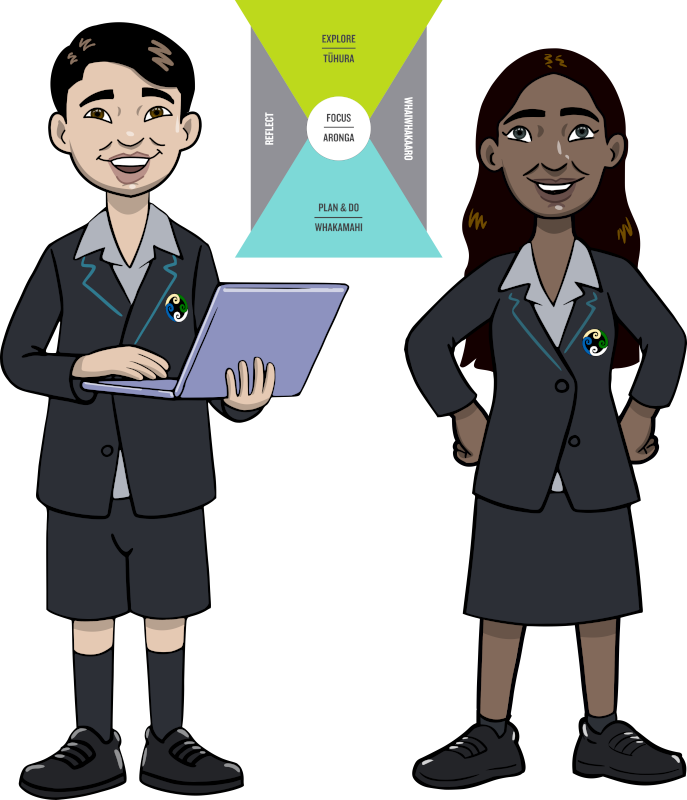
Wänanga: Active Learner
Ako: Learning and Thinking Strategy

-
Week 4
EXPLORE / TŪHURA learning intentions:
- We are EXPLORING “Multicultural Us-Whanaungatanga” by discovering the cultural diversity in New Zealand.
- We are EXPLORING “Multicultural Us-Whanaungatanga” by investigating the changing face of Aotearoa
- We are EXPLORING “Multicultural Us- Whanaungatanga” by analysing the factors contributing to the changing face of Aotearoa
- We are EXPLORING “Multicultural Us-Whanaungatanga” by recognising the impacts of changing face of Aotearoa on our life and communities
Wänanga: Active Learner
Awhinatanga: Culturally Connected

Wänanga: GREAT Ako

Ako: Learning and Thinking Strategy

Awhinatanga: Positive Partnerships

Vocabulary: Homophones: https://www.grammarly.com/blog/homophones/
Activities:-Research and present/explain your findings in a P.P.T./Slideshow:
Group1: Differences among race, ethnicity, culture and community.
Group 2: What makes New Zealand a favourite country for migrants?
Group 3: What are the challenges of a multicultural society?
W.W.W. English Workbook pages: 53, 54 & 55
-
Week 5
EXPLORE / TŪHURA learning intentions:
- We are EXPLORING “Multicultural Us-Whanaungatanga” by discovering the cultural diversity in New Zealand.
- We are EXPLORING “Multicultural Us-Whanaungatanga” by investigating the changing face of Aotearoa
- We are EXPLORING “Multicultural Us- Whanaungatanga” by analysing the factors contributing to the changing face of Aotearoa
- We are EXPLORING “Multicultural Us-Whanaungatanga” by recognising the impacts of changing face of Aotearoa on our life and communities
Awhinatanga: Positive Partnerships

Awhinatanga: Culturally Connected

Wänanga: GREAT Ako

Wänanga: Active Learner
Ako: Learning and Thinking Strategy

Vocabulary: https://dictionary.cambridge.org/grammar/british-grammar/prefixes
Activities:
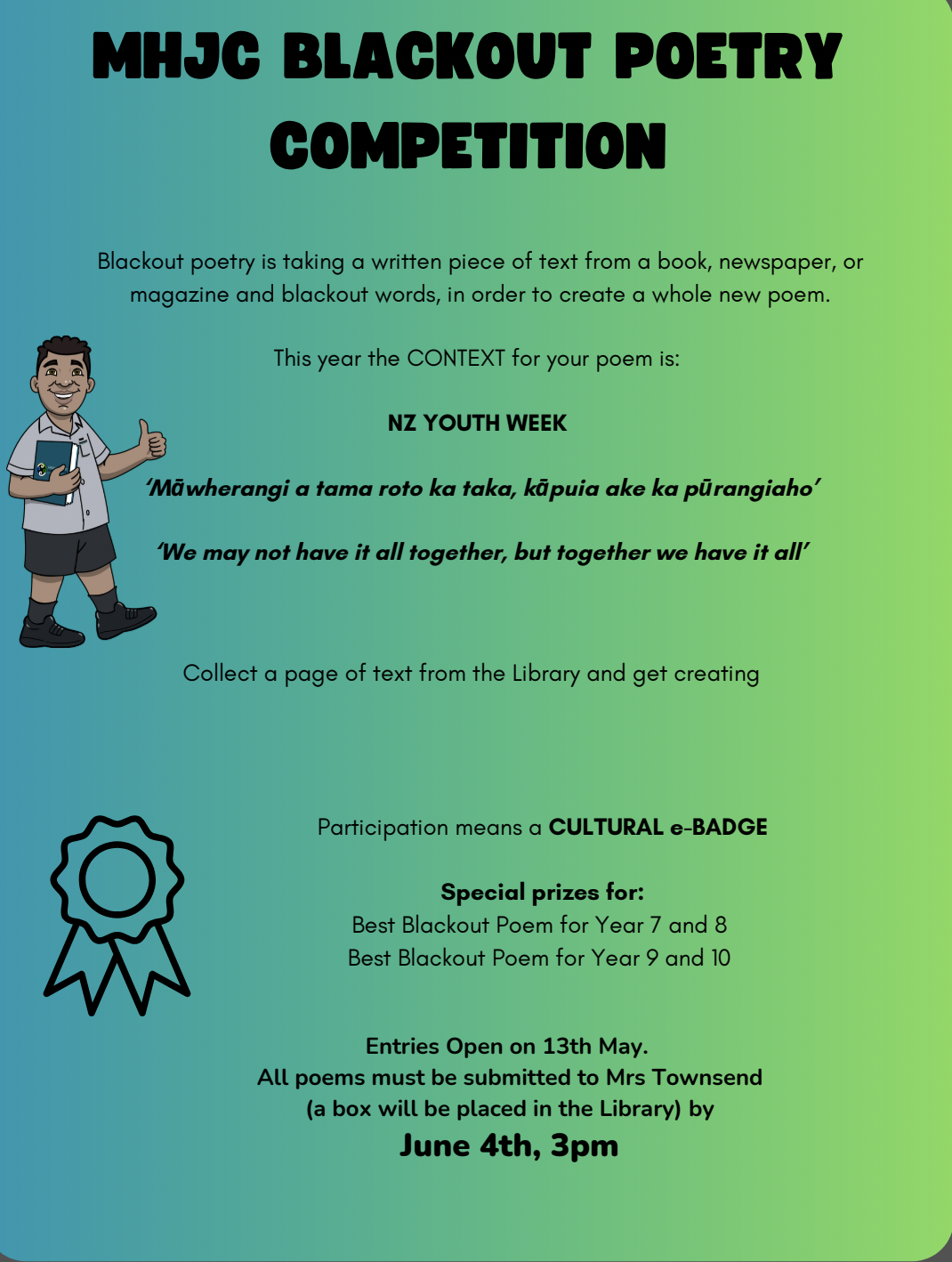
Once you have mapped out the different identities you hold, you can build more self-awareness of the ways that these identities impact how you experience the world, including how others see and act toward you.
You may also notice the way that your identities interact with each other, as your experience of the world is about more than any one of your identities alone.
What are your identities? Pick three that are the most important to you. Why did you pick those three?
Think of five people you most identify with.
- What do you notice when you look at these five people?
- What identities do these people hold that are different from your own?
-
Week 6
EXPLORE / TŪHURA learning intentions:
- We are EXPLORING “Multicultural Us-Whanaungatanga” by discovering the cultural diversity in New Zealand.
- We are EXPLORING “Multicultural Us-Whanaungatanga” by investigating the changing face of Aotearoa
- We are EXPLORING “Multicultural Us- Whanaungatanga” by analysing the factors contributing to the changing face of Aotearoa
- We are EXPLORING “Multicultural Us-Whanaungatanga” by recognising the impacts of changing face of Aotearoa on our life and communities.
Wänanga: Active Learner
Awhinatanga: Culturally Connected

Wänanga: GREAT Ako

Ako: Learning and Thinking Strategy

Awhinatanga: Positive Partnerships

FOCUS / ARONGA learning intentions:
- We are FOCUSING...on Cultural Competence by developing our understanding about the components of being a Global Citizen.
- We are FOCUSING...on Cultural Competence by learning the strategies to navigate cultural differences.
- We are FOCUSING...on Cultural Competence by enhancing our awareness about diverse cultures around us.
DO NOW: WHAT IF?
Choose one of the following 'What If' writing prompts and write:
-
● “What if you woke up one day and found out that you had the power to time travel?”
-
● “What if you were the last person on Earth? How would you spend your time?”
-
● “What if you were granted three wishes, but each one came with a terrible consequence?”
-
● “What if you discovered a secret portal to another world? Where would you go, and
what would you do?”
-
● “What if you woke up one day with the ability to communicate with animals? How
would your life change?”
-
● "What if you were the New Zealand Prime Minister?"
-
● "What if you woke up as a different gender?
I were or I was:
https://languagetool.org/insights/post/grammar-if-i-was-were/#:~:text=If%20I%20were%20is%20used,actually%20happened%20in%20the%20past.
Activities: (2 sessions this week)
-Reading articles on the changing face of Aotearoa.
-Constructing graphs based on the data given in the articles.
Resources:
https://www.nzherald.co.nz/nz/changing-face-of-new-zealand/CDRTQ7LDM753U2ABPJXLT7HHPU/#:~:text=New%20Zealand's%20culture%20is%20much,according%20to%20last%20year's%20census.
https://realitycheck.radio/the-changing-face-of-new-zealand/ -
Week 7
EXPLORE / TŪHURA learning intentions:
- We are EXPLORING “Multicultural Us-Whanaungatanga” by discovering the cultural diversity in New Zealand.
- We are EXPLORING “Multicultural Us-Whanaungatanga” by investigating the changing face of Aotearoa
- We are EXPLORING “Multicultural Us- Whanaungatanga” by analysing the factors contributing to the changing face of Aotearoa
- We are EXPLORING “Multicultural Us-Whanaungatanga” by recognising the impacts of changing face of Aotearoa on our life and communities
FOCUS / ARONGA learning intentions:
- We are FOCUSING...on Cultural Competence by developing our understanding about the components of being a Global Citizen.
- We are FOCUSING...on Cultural Competence by learning the strategies to navigate cultural differences.
- We are FOCUSING...on Cultural Competence by enhancing our awareness about diverse cultures around us.
Reading Strategy:
Graphic Organizers
Graphic organizers show readers how to display relationships of ideas with diagrams, pictorial devices, or story maps. These techniques are often used to instruct readers to organize their ideas with graphic representations of what they read. Graphic organizers help readers learn text structures, focus on concepts and relations between concepts, construct tools to represent text relationships visually, and assist in writing well-organized summaries. Graphic organizers are appropriate for expository (explanatory) texts in content areas such as science or social studies.
Graphic Organiser Examples: https://venngage.com/blog/graphic-organizer-examples/
Activities:
-Learning about what does ethnic diversity look like in Aotearoa/New Zealand schools, and how is this likely to change?
-What are the implications of ethnic diversity on school education?
Wänanga: Active Learner
Awhinatanga: Culturally Connected

Wänanga: GREAT Ako

Ako: Learning and Thinking Strategy

Awhinatanga: Positive Partnerships

-
Week 8
FOCUS / ARONGA learning intentions:
- We are FOCUSING...on Cultural Competence by developing our understanding about the components of being a Global Citizen.
- We are FOCUSING...on Cultural Competence by learning the strategies to navigate cultural differences.
- We are FOCUSING...on Cultural Competence by enhancing our awareness about diverse cultures around us.
Do now:
Reading Processing Strategies: Comprehension Monitoring (See attached slideshow)
Activities:
Stepping out of comfort zone
When did you last step out of your comfort zone and learn something new? What was the setting? Who was involved?
What did you learn? How did it feel?
What are some self-regulation strategies that have worked for you?
(Examples of self-regulation strategies)
-Exercise takes my mind off the stressful situations.
-Writing down about my feelings makes me feel better.
-Reading takes me to another world where I don't have to deal with my problems.
-Talking to my family/friends who usually provide some sort of solace/solution or at least distraction.
-TV is a great distractor.
-Music always seems to help.
-Seeking help of a professional counsellor when things went totally out of control.
-
Week 9
FOCUS / ARONGA learning intentions:
- We are FOCUSING...on Cultural Competence by developing our understanding about the components of being a Global Citizen.
- We are FOCUSING...on Cultural Competence by learning the strategies to navigate cultural differences.
- We are FOCUSING...on Cultural Competence by enhancing our awareness about diverse cultures around us.
Activities: (2 sessions this week)
-Have you ever made an assumption about someone based on only one of their identities? When did you realize that your perception was incomplete or limited?
-Have you ever been mistaken as a member of a group that you don’t identify with? What visual signals or symbols did the other person misread? Have you ever made a similar mistake?
-TEXAS/PEEL Paragraph Writing Revision.
SUCCESS CRITERIA: -
Week 10
FOCUS / ARONGA learning intentions:
- We are FOCUSING...on Cultural Competence by developing our understanding about the components of being a Global Citizen.
- We are FOCUSING...on Cultural Competence by learning the strategies to navigate cultural differences.
- We are FOCUSING...on Cultural Competence by enhancing our awareness about diverse cultures around us.
Activities:
Opinion Writing
POW-TREE
- POW: Pick an idea, Organize notes, Write and say more
- TREE: Topic sentence, Reasons (grade-appropriate number of reasons), Explain each reason further, and Ending
(Harris et al., 2002)
OREO
- O – Opinion
- R – Reason
- E – Evidence
- O – Opinion (restated)
-Email Writing-Learning about 'Purpose & Audience'
Resources:
https://literacyideas.com/how-to-teach-opinion-writing/
http://www.thinkgrowgiggle.com/2021/03/3-easy-to-implement-tips-to-teach.html
https://www.twinkl.co.nz/teaching-wiki/audience
-
Kia ora 10W1,
My name is Debbie Pillay and I will be your English Teacher for Term 3 and Term 4. I will give you a brief introduction of myself in class. Looking forward to meeting everyone!
N.B. Please put your bags into the cupboards promptly. You will need pens, books and devices.
EXPLORE / TŪHURA learning intentions:
- We are EXPLORING the olympics by analysing texts and how they are structured for different purposes
- We are EXPLORING the olympics by explaining the effects of conventions in a written/visual text
- We are EXPLORING olympics by discussing how language is used varies across time, place, and social contexts.
Success criteria:
I can identify structural features used in texts (eg. paragraphing)
I can locate the key ideas in each paragraph
I can identify details and evidence evidence supporting the key ideas in paragraphs
I can identify the language features used in a text for achieve purpose
I can describe the effect of the language features used by the writer
I can locate the linking words used by the writer
This weeks activities will include :
Literacy activities
Warm up 10 minutes: Grammar, Spelling and Punctuation on slides
-
EXPLORE / TŪHURA learning intentions:
- We are EXPLORING the olympics by analysing texts and how they are structured for different purposes
- We are EXPLORING the olympics by explaining the effects of conventions in a written/visual text
- We are EXPLORING olympics by discussing how language is used varies across time, place, and social contexts.
Success criteria:
I can identify structural features used in texts (eg. paragraphing)
I can locate the key ideas in each paragraph
I can identify details and evidence evidence supporting the key ideas in paragraphs
I can identify the language features used in a text for achieve purpose
I can describe the effect of the language features used by the writer
I can locate the linking words used by the writer
This weeks activities will include :
Literacy activities
Warm up 10 minutes: Grammar, Spelling and Punctuation on slides
-
Welcome to Week 3 of Term 3 : Please bring your copy of Literacy Essentials Books
EXPLORE / TŪHURA learning intentions:
- We are EXPLORING the olympics by analysing texts and how they are structured for different purposes
- We are EXPLORING the olympics by explaining the effects of conventions in a written/visual text
- We are EXPLORING olympics by discussing how language is used varies across time, place, and social contexts.
Success criteria:
I can identify structural features used in a range of text eg. headline, byline, lead sentence, body and closing sentence
I can identify the audience and purpose of a text
- Review on how to write an article: Annotate the 5W's and 1h in the articles on pg. 87 Literacy Essentials
- Read and reflect on Examples of Articles based around the Olympics
-
Welcome to Week 4 of Term 3 : Please bring your copy of Literacy Essentials Books
EXPLORE / TŪHURA learning intentions:
- We are EXPLORING the olympics by analysing texts and how they are structured for different purposes
- We are EXPLORING the olympics by explaining the effects of conventions in a written/visual text
- We are EXPLORING olympics by discussing how language is used varies across time, place, and social contexts.
Success criteria:
I can identify structural features used in a range of text eg. headline, byline, lead sentence, body and closing sentence
I can identify the audience and purpose of a text
I can plan my ideas
- Homework : Read and reflect on Examples of Articles based around the Olympics
- Self study read page 70/71
- Literacy warm up activities focusing on Grammar and Spelling
- Comprehension Text 16 : Wildboy pg40/41 Literacy Essentials
- Analysing newsletter articles and looking at the key components of the text structure
- Review brainstorming, planning and structure pg 65-67 Literacy Essentials
- Begin drafting a newsletter : Scaffolded planning doc
-
Opened: Friday, 16 August 2024, 1:00 AMDue: Monday, 9 September 2024, 3:00 PM
Students are to write an informative article for our school newsletter.
-
Welcome to Week 5 of Term 3 : Please bring your copy of Literacy Essentials Books
EXPLORE / TŪHURA learning intentions:
- We are EXPLORING the olympics by analysing texts and how they are structured for different purposes
- We are EXPLORING the olympics by explaining the effects of conventions in a written/visual text
- We are EXPLORING olympics by discussing how language is used varies across time, place, and social contexts.
Success criteria:
I can identify structural features used in a range of text eg. headline, byline, lead sentence, body and closing sentence
I can identify the audience and purpose of a text
I can plan my ideas
- Self study read page 70/71
- Literacy warm up activities focusing on Grammar and Spelling
- Comprehension Text 16 : Wildboy pg40/41 Literacy Essentials
- Analysing newsletter articles and looking at the key components of the text structure
- Review brainstorming, planning and structure pg 65-67 Literacy Essentials
- Begin drafting a newsletter : Scaffolded planning doc
-
Welcome to Week 6 of Term 3 : Please bring your copy of Literacy Essentials Books
FOCUSING/ARONGA learning intentions:
- We are FOCUSING the olympics by analysing texts and how they are structured for different purposes
- We are FOCUSING the olympics by explaining the effects of conventions in a written/visual text
PLANNING/DO
- We are PLANNING to write an article so that we can publish our article for the school newsletter.
Success criteria:
I can identify the audience and purpose of a text
I can plan my ideas
I can write an article using structural features used in a range of text eg. headline, byline, lead sentence, body and closing sentence
- Self study read page 70/71
- Literacy warm up activities focusing on Grammar and Spelling
- Begin assessment 3
- Begin brainstorm, research topic for a newsletter
-
Welcome to Week 7 of Term 3 : Please bring your copy of Literacy Essentials Books
FOCUSING/ARONGA learning intentions:
- We are FOCUSING the olympics by analysing texts and how they are structured for different purposes
- We are FOCUSING the olympics by explaining the effects of conventions in a written/visual text
PLANNING/DO
- We are PLANNING to write an article so that we can publish our article for the school newsletter.
Success criteria:
I can identify the audience and purpose of a text
I can plan my ideas
I can write an article using structural features used in a range of text eg. headline, byline, lead sentence, body and closing sentence
- Self study read page 70/71
- Literacy warm up activities focusing on Grammar and Spelling
- Continue with assessment 3
- Planning, write draft in work books.
- Edit, publish on Google docs and then upload newsletter
-
Welcome to Week 8 of Term 3 : Please bring your copy of Literacy Essentials Books
FOCUSING/ARONGA learning intentions:
- We are FOCUSING the olympics by analysing texts and how they are structured for different purposes
- We are FOCUSING the olympics by explaining the effects of conventions in a written/visual text
PLANNING/DO
- We are PLANNING/DO to write an article so that we can publish our article for the school newsletter.
Success criteria:
I can identify the audience and purpose of a text
I can plan my ideas
I can write an article using structural features used in a range of text eg. headline, byline, lead sentence, body and closing sentence
- Literacy warm up activities focusing on Grammar and Spelling
- Edit, publish on Google docs and then upload newsletter
- Assessment Due
- Reading Text this week is Text 9 and Test 10
-
Term 3 Week 9
EXPLORE / TŪHURA learning intentions:
- We are EXPLORING ELEMENTS OF VISUAL LANGUAGE by by observing and understanding symbols and examples
Literacy Activities:
- Learning about the meaning of different colours as we will use different colours in our Static Image.
- Learning about the meaning of different symbols as we may use some symbols in our Static Image.
- Static image -Visual techniques slides - This weeks task is on slide 6
-
EXPLORE / TŪHURA learning intentions:
- We are EXPLORING ELEMENTS OF VISUAL LANGUAGE by by observing and understanding symbols and examples
Literacy Activities:
- Learning about the meaning of different colours as we will use different colours in our Static Image.
- Learning about the meaning of different symbols as we may use some symbols in our Static Image.
- Static image -Visual techniques slides - This weeks task is from slide 28
-
Term 3 Holidays!
-
Term 3 Holidays!
-
Welcome to term 4!
This week:
- Session one revise How to close read Visual Images
- Session two revise How to close read a Poem
- Session three Friday : Library
Next week we will begin with Careers in Banquer High Programme
We are EXPLORING the Game of Life by participating in Banquer High where we will learn all about Financial literacy, CV and letter writing and Aspects on how to be a responsible adult.
-
Week 2 Please bring your Literacy Essentials Work book
EXPLORE / TŪHURA learning intentions:
- We are EXPLORING the Game of Life by participating in Banquer High where we will learn all about Financial literacy, CV and letter writing and Aspects on how to be a responsible adult.
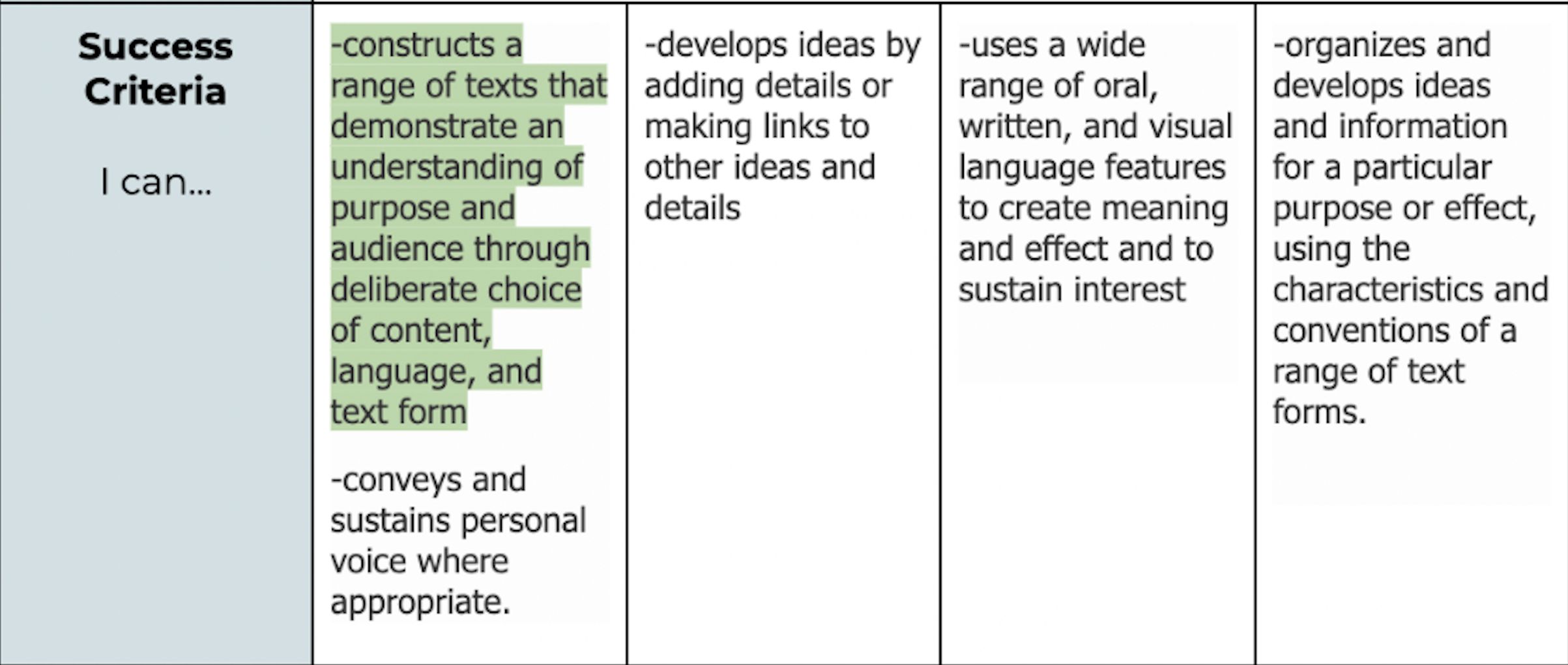
Learning Activities:- Mark Poem
- How to write a Formal Letter
-
Week 3 Please bring your Literacy Essentials Work book
EXPLORE / TŪHURA learning intentions:
- We are EXPLORING the Game of Life by participating in Banquer High where we will learn all about Financial literacy, CV and letter writing and Aspects on how to be a responsible adult.

Learning Activities:- How to write a CV
-
Week 4 Please bring your Literacy Essentials Work book
EXPLORE / TŪHURA learning intentions:
- We are EXPLORING the Game of Life by participating in Banquer High where we will learn all about Financial literacy, CV and letter writing and Aspects on how to be a responsible adult.

Learning Activities:- How to write a Cover Letter
- Revision : Grammar
- Library Tuesday - Session 1
-
Week 5 Please bring your Literacy Essentials Work book
EXPLORE / TŪHURA learning intentions:
- We are EXPLORING the Game of Life by participating in Banquer High where we will learn all about Financial literacy, CV and letter writing and Aspects on how to be a responsible adult.

Learning Activities:- How to write a Cover Letter
- Revision : CAT
-
Week 6 Please bring your Literacy Essentials Work book
EXPLORE / TŪHURA learning intentions:
- We are EXPLORING the Game of Life by participating in Banquer High where we will learn all about Financial literacy, CV and letter writing and Aspects on how to be a responsible adult.

Learning Activities:- CAT on Monday Session 1
-
EXPLORE / TŪHURA learning intentions:
- We are EXPLORING the Game of Life by participating in Banquer High where we will learn all about Financial literacy, CV and letter writing and Aspects on how to be a responsible adult.

Learning Activities:- complete Banquer High activities
- Tuesday - Workshops
- Work Experience




